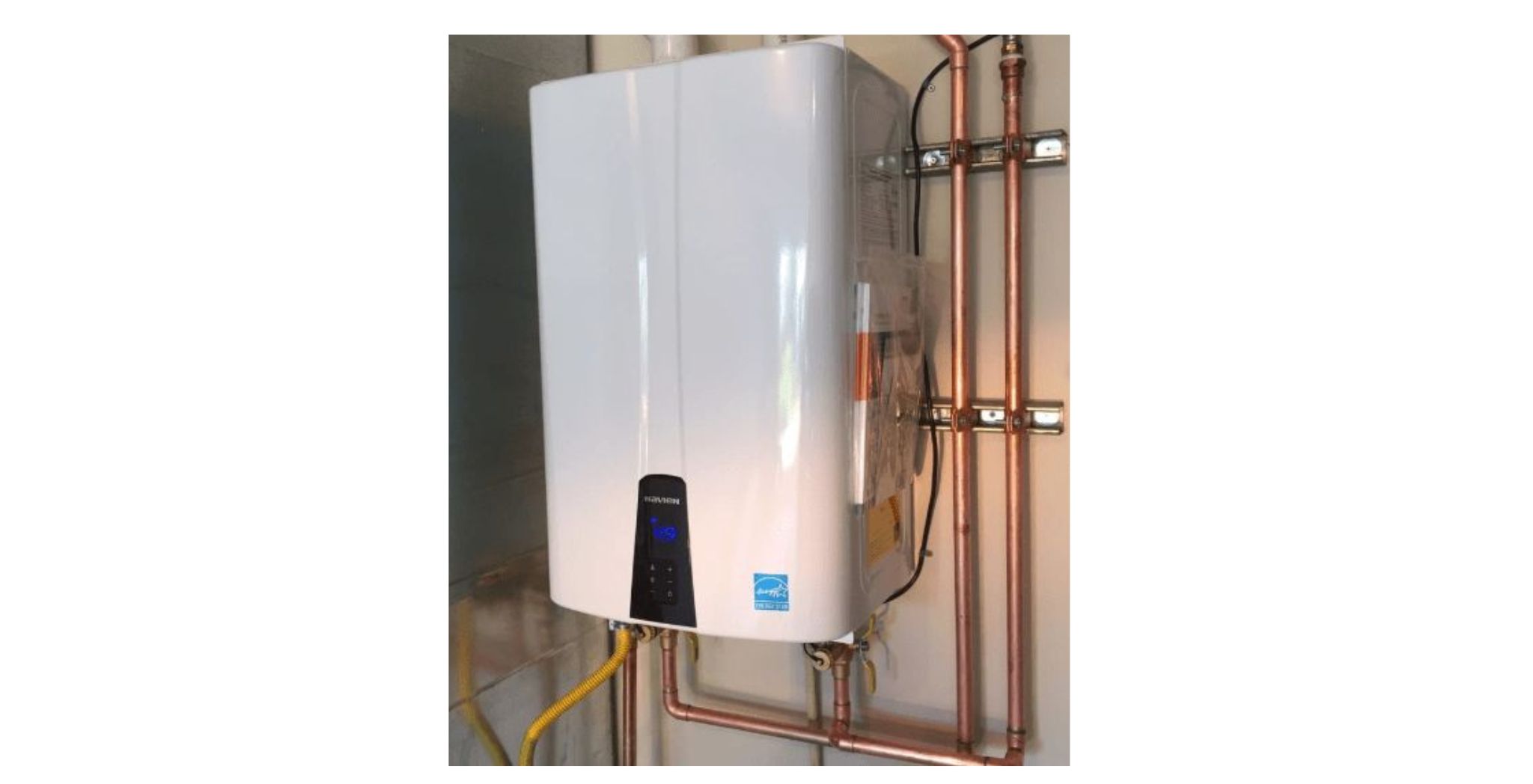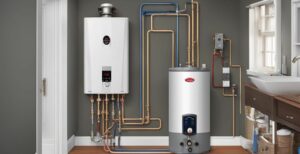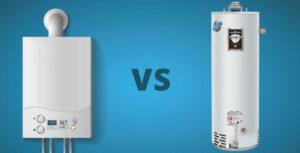Introduction
In the quest for more efficient and eco-friendly living, the adoption of tankless water heaters is rapidly gaining traction in residential and commercial buildings.
Known for their on-demand water heating capability, these systems are revolutionizing how we access hot water.
This blog delves into the multifaceted benefits of tankless water heaters, highlighting their energy efficiency, space-saving design, safety features, and financial incentives.
Energy Efficiency: A Leap Forward
One of the standout features of tankless water heaters is their remarkable energy efficiency.
Unlike traditional heaters that constantly heat and reheat water, tankless systems only heat water when needed.
This on-demand approach leads to significant energy savings. ENERGY STAR-labeled tankless water heaters can be 24%–34% more energy efficient than their traditional counterparts in homes that use 41 gallons or less of hot water daily.
This efficiency reduces energy consumption and contributes to a greener planet.
Endless Hot Water and Space Saving
Say goodbye to the days of running out of hot water during peak hours.
Tankless water heaters provide a continuous hot water supply, making them ideal for large families or commercial settings.
Moreover, these heaters boast a compact design. Without needing a large tank, they occupy significantly less space, which is a boon for smaller homes and businesses looking to maximise their usable area.
Complying with Safety Regulations
Safety is a paramount concern in any heating system. Tankless water heaters are designed with numerous safety features and comply with strict safety regulations.
These systems often include overheat protection, automatic shut-off in case of a malfunction, and ventilation that reduces the risk of carbon monoxide buildup, particularly in gas-powered models.
Financial Incentives: Rebates and Tax Credits
Investing in a tankless water heater can also be financially savvy. Many regions offer rebates and tax credits to encourage the adoption of energy-efficient appliances.
By choosing a tankless system, homeowners and businesses can potentially lower their initial investment through these incentives, making the switch more accessible and appealing.
Contribution to LEED Certification
Tankless water heaters contribute to LEED (Leadership in Energy and Environmental Design) water efficiency credits for those committed to sustainable building practices.
This is crucial for projects aiming for LEED certification, a globally recognized symbol of sustainability achievement and leadership.
The Importance of Professional Installation
While tankless water heaters have numerous benefits, proper installation is key to maximizing these advantages.
Professional installation ensures the system is set up correctly, operates at peak efficiency, and complies with all local codes and regulations.
Life Mechanical Plumbing and Heating installs all brands and models including Navien, Rinnai Rheem, and Bosch.
Residential and Commercial Applications
The versatility of tankless water heaters extends to both residential and commercial applications.
In homes, they provide families with a constant hot water supply, while in commercial settings, they can handle the high demand and varied usage patterns efficiently.
Space Efficiency:
Tankless water heaters are much smaller than traditional models, offering significant space savings.
They can be mounted on the wall, freeing up valuable floor space, which is particularly beneficial in areas with limited room.
Safety Compliance:
These heaters are designed to meet strict safety regulations, providing on-demand hot water necessary in facilities handling hazardous materials and ensuring compliance with safety standards, including those set by OSHA.
Energy Efficiency:
Tankless water heaters are significantly more energy-efficient than traditional water heaters. Gas models, in particular, are up to 34% more efficient and have a longer lifespan, leading to notable energy savings over time.
Financial Incentives:
Installing tankless water heaters can be incentivized through various rebates and tax credits offered by state and local utility companies. These financial incentives help offset the initial installation cost.
LEED Water Efficiency Credits:
Installing certain tankless water heaters contributes to LEED water efficiency credits, making them an attractive option for buildings aiming for LEED certification and focused on sustainability and energy efficiency.
Gas vs. Electric Heaters
Tankless water heaters come in tankless water heaters electric models. Gas heaters typically offer a higher flow rate, making them suitable for larger households or commercial buildings.
Conclusion
Switching to a tankless water heater is not just a practical decision; it’s a step towards a more sustainable and efficient way of living.
With benefits ranging from energy savings to space efficiency, safety, financial incentives, and environmental contributions, it’s clear why tankless water heaters are becoming a preferred choice in modern buildings.
Whether for a home or a business, investing in a tankless water heater is an investment in the future.
Life Mechanical Plumbing and Heating can help you upgrade from a tank-type water heater to a tankless water heater.






